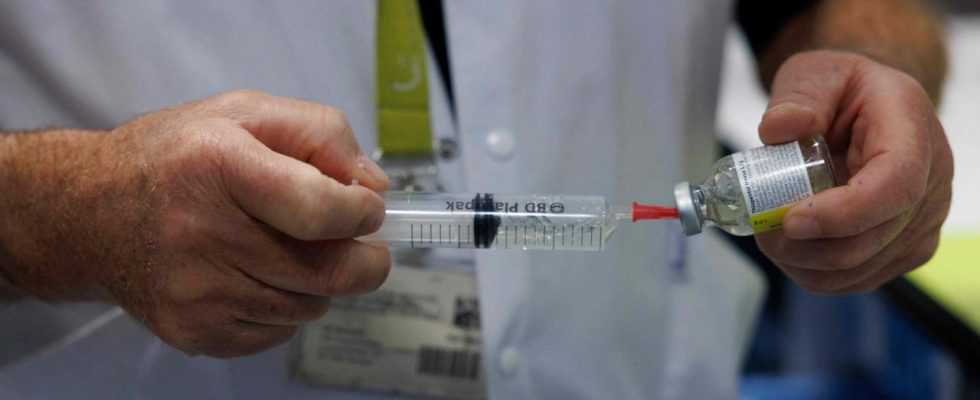For a year and a half, around 200 French people have been working on the issue: active euthanasia should now be legalized. Today President Macron is meeting with involved citizens.
The legislative marathon began this week for one of the major projects in French President Emmanuel Macron’s second term in office. It’s about euthanasia: The responsible parliamentary committee has been hearing experts on the topic since Monday.
Today Macron is meeting with a citizens’ convention – around 200 French people selected by lot have taken part in it for a year and a half. Jean-François Delfraissy was on the board of this convention and has also headed France’s Ethics Council for almost a decade. During the Covid pandemic he was chief advisor to the French government, as an immunologist he cared for people with AIDS and conducted research on the HIV virus. His commitment to the issue of euthanasia is no coincidence.
“As in Germany and the USA, we also experienced a black time from 1990 until the first therapies came in 1996. Many younger people died back then. They wanted to live and demanded medication,” says Delfraissy. “But some were at the end, blind, had diarrhea ten times a day. In the name of their dignity, they demanded that we help them die – that shaped me for the rest of my life.”
Patients must suffer from a terminal illness
Delfraissy therefore has a firm opinion on how the end of life should be cared for medically and ethically and how those affected can be helped. This opinion is reflected in the new law, which will be debated in the French Parliament from the end of May.
“Patients are given the option of euthanasia. The law fulfills the wish to be accompanied in the final moments,” explains Delfraissy. This has nothing to do with euthanasia. If desired, the patient can take lethal medication himself.
To do this, he would have to suffer from an incurable illness that leaves him little chance of survival in the short or medium term. With all the imponderables, we are talking about a few weeks to months, defines Delfraissy.
“Access to euthanasia under strict conditions”
“All of this must be approved in advance by a medical team. Minors and only mentally ill people are excluded from this,” explains Delfraissy. Those affected should make a fully conscious decision, which also excludes Alzheimer’s patients. Figures from Belgium and Switzerland show that 50 percent of patients changed their mind.
Like the immunologist Delfraissy, Health Minister Cathérine Vautrin also gave information in the parliamentary committee this week. She believes that it is a balanced legal text that manages to take into account different interests and rights and thus enables access to euthanasia under strict conditions.
85 percent of French people support euthanasia
According to a survey by the IFOP Institute, 85 percent of French people support assisted suicide; three quarters praise the work of the Citizens’ Convention. Right-wing conservative circles and the churches, which express concern about the social effect, are more negative.
Delfraissy reminds us of the dimensions: “60,000 people die in palliative care every year. That’s one in ten deaths. So it only affects a fraction – as in Germany.” More research is needed, so the first part of the law is about strengthening palliative medicine.
President Macron also sees this need: “Our system of support at the end of life is poorly adapted to modern requirements.” The number of palliative care beds has grown from 7,500 within three years to more than 9,500 in 2022.
But the increase is too slow and the supply is too unevenly distributed: 21 departments with more than 100,000 inhabitants have no palliative care beds. Some regions do not have mobile palliative care units for children. And the nursing staff have not adequately acquired the palliative culture – due to a lack of training.
The head of the Ethics Council still sees enormous progress. France also wants to invest eleven billion euros in palliative care over the next ten years. German-French cooperation is also important to Delfraissy: “In the area of bioethics, we meet every year with the German Ethics Council.”
You don’t always come to the same conclusions. “I thought we would get to a European Ethics Council more quickly, but that is complicated, like Europe in general.” Nevertheless, the French and Germans already shared many bioethical visions.
Stefanie Markert, ARD Paris, tagesschau, April 26, 2024 10:14 a.m

